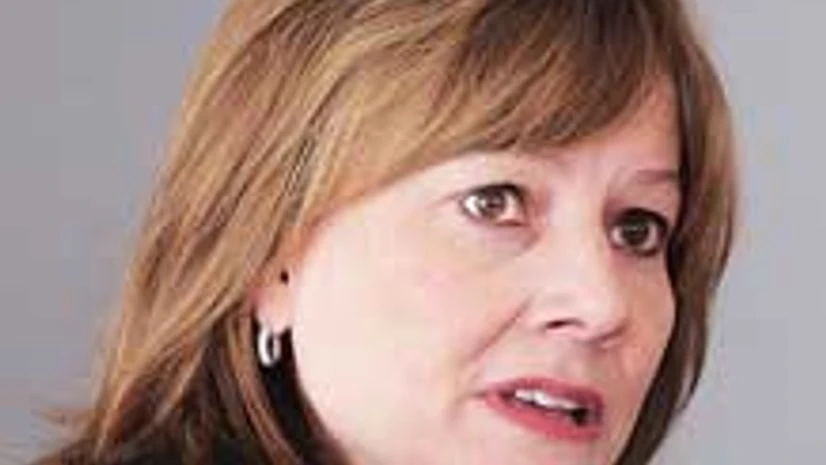It was a moment unlike any other at General Motors: the top executive stepping - personally and publicly - into the middle of one of the gravest safety problems in the company's history.
But there was Mary T Barra on Tuesday, barely two months into her job as chief executive, pledging to fix faulty ignition switches linked to 12 deaths and to explain why the automaker failed for 10 years to correct a problem it knew existed.
In a conference room at GM headquarters in Detroit overlooking the Detroit River, she methodically answered questions - her first such meeting with reporters since the 1.6 million cars were recalled last month.
Barra sought to restore some measure of confidence in the company's new leadership, starting with herself.
"Our goal is to make sure that something like this never happens again," she said.
She admitted that she learned in late December that internal safety committees were analysing defects in the Chevrolet Cobalt, more than a month before the company decided to issue its recall and earlier than the company has said she was told.
But she said she did not know the serious nature of the defects until January 31, when she was informed that two safety committees had concluded that a recall was necessary.
Her performance was a marked departure from the norm in the auto industry, where corporate chiefs routinely avoid talking about recalls unless subpoenaed by Congress.
For Barra, the festering controversy is both an opportunity and a risk.
"She's owning it," says Daniel G. Hill, president of public relations firm Ervin Hill Strategy. "She will not be able to distance herself from it. It's now hers."
Barra's straightforward strategy will be severely tested in the weeks ahead, as federal regulators and other government officials press for details on why GM waited years to reveal that ignition switches in its small cars could, if bumped or weighed down by a heavy key ring, cut off engine power and disable air bags.
She still faces investigations from two congressional committees, federal safety regulators and the Justice Department - all paying keen attention to any public statements she makes.
In her short tenure, Barra has emerged as the face of GM in an unexpected way - apologising for the company's failings in a video to employees, naming a new top executive to oversee safety issues, and participating in Tuesday's session with reporters to take responsibility for the company's inexplicable delay in addressing a deadly flaw in its cars.
GM officials said it was Barra's decision to take center stage, just as Lee Iacocca did a generation ago when the Chrysler boss took the heat for his company's poor quality.
While she has brought in outside lawyers to conduct a thorough investigation of the recall mess, Barra has yet to dismiss or discipline employees who knew of the problems for years.
That investigation could take months, she said, and she will not act until all the facts are in.
"I know you want to know what happened," she told reporters. "So do I."
But even as she pleads for patience with the lengthy investigative process, Barra is wasting little time trying to express the emotions and sorrow of an entire company.
In her meeting with reporters, Barra began with another apology. "I want to start by saying how sorry personally and how sorry General Motors is for what has happened," she said. "Clearly lives have been lost and families are affected, and that is very serious."
Throughout the hourlong session, she calmly answered questions directly and without notes.
At one point, she was asked a blunt question: Are the recalled cars safe to drive until repairs are made? "If you have just the ring with the key, it is safe to drive," she said.
She added that she had confronted GM's own safety engineers with another question. "Would you let your wife drive this car?" she said. "And they said yes."
She did not, however, reveal any plans to reach out directly to the families of victims - GM has not identified any details of the fatal crashes - or to compensate people for accidents that occurred before the company emerged from bankruptcy. Under the terms of its reorganisation, GM is not liable for litigation filed before it went bankrupt.
Barra said she expected to be called to testify before congressional committees to answer similar questions next month. "If I'm called, I will," she said.
Until then, she is holding daily meetings with senior executives charged with handling various aspects of the recall, which is expected to begin in April. She also plans to work closely with Jeff Boyer, a veteran GM engineer who on Tuesday was named the company's first vice president in charge of global vehicle safety.
© 2014 The New York Times News Service

)
